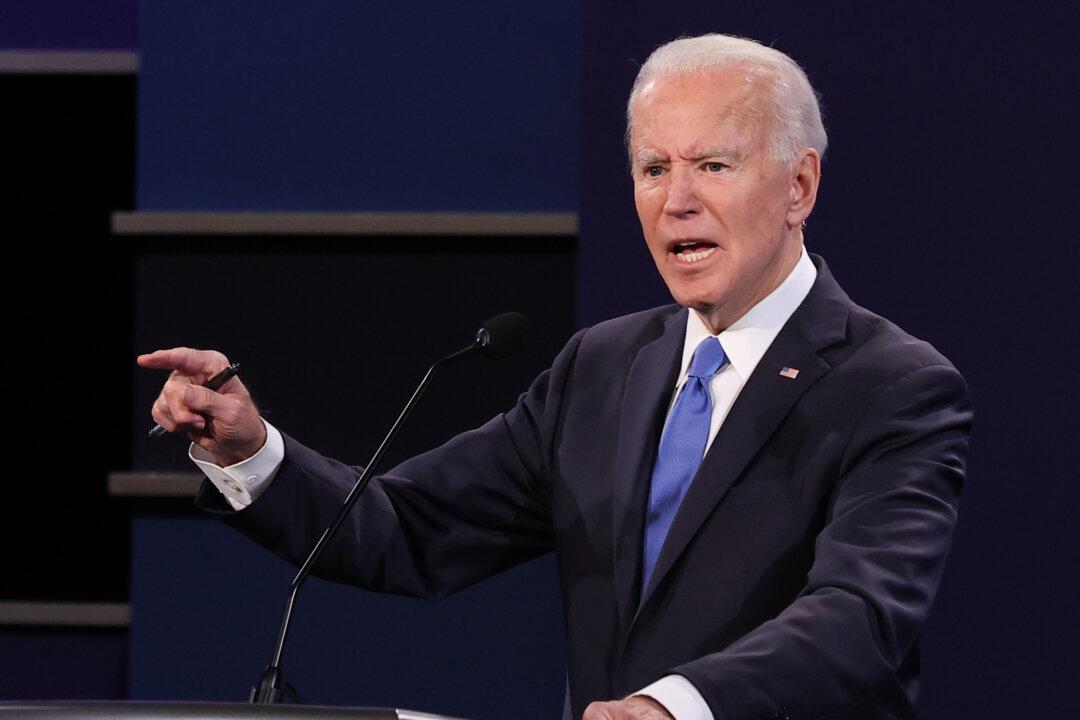Nearing the end of the second and final presidential debate in Nashville, Tennessee, on Thursday night, former Vice President Joe Biden said that he would “transition from the oil industry ... over time.”
When asked, “Would you close down the oil industry?” by President Donald Trump, the Democratic presidential nominee said, “I would transition from the oil industry, yes.”




